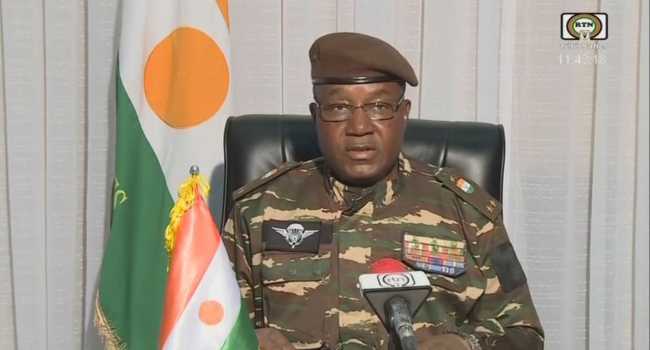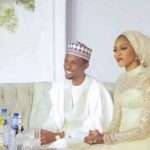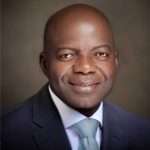This is the first time the junta in Niger has committed to dialogue with the West African regional group ECOWAS. It follows a visit to the junta by a team of Nigerian Islamic scholars. During a meeting with Nigerian Islamic leaders, Gen. Tchiani said he was ready to dialogue with ECOWAS.
Niger’s military junta says it is open to dialogue with the West African regional bloc ECOWAS. This is the first time the coup leaders have signaled an open door for talks with the regional body.
The West African bloc had imposed sanctions on Niger and threatened to use force to reverse the coup. An attempt last week to send a joint team of ECOWAS, UN and African Union representatives to Niamey for talks was rejected by the coup leaders.
However, following a visit by a delegation of influential Islamic scholars from neighboring Nigeria on Saturday, the junta said it was now ready for talks with the West African bloc.
The Islamic leaders held talks with the junta leader General Abdourahmane Tchiani. Niger’s Prime Minister appointed by the junta, Ali Mahamane Lamine Zeine, told reporters in Niamey that General Tchiani has given the green light for talks with ECOWAS.
Talks in days
Asked whether the junta was ready to dialogue with ECOWAS, the Prime Minister replied: ‘’Yes, for sure. That was exactly what the leader of our country told them, he did not say he was not open to dialogue. ’’The Prime Minister was optimistic the talks with ECOWAS would take place in the next few days.
‘’We have agreed and the leader of our country has given the green light for dialogue. They will now go back and inform the Nigerian President what they have heard from us…. we hope in the coming days, they (ECOWAS) will come here to meet us to discuss how the sanctions imposed against us will be lifted,’’ he said.
The PM described the ECOWAS sanctions, which have started to cause hardship, as ”an injustice” and that they were contrary to the rules of the bloc. He however, said lifting the sanctions was not a precondition for talks.
‘Successful mission’
Leader of the Islamic scholars’ delegation, Sheikh Abdullahi Bala Lau, told journalists that they were in Niger on a ”reconciliation mission.” He said they told the junta leader that dialogue was important to resolve the crisis.
Sheikh Lau said before their trip to Niger, they had told Nigerian President Bola Tinubu who is also the head of ECOWAS that the use of force to reverse the coup was not appropriate.
The Islamic scholar said their mission to Niamey was ”successful” in reference to securing a commitment to dialogue from the junta. He however, said they did not meet ousted President Mohamed Bazoum because it was not part of their mission.
Nigerian President Bola Tinubu, who is currently the chairman of West African bloc ECOWAS, had approved the mediation effort by the religious leaders. They are expected to inform him about the outcome of their visit.
Historical ties
Before the British and French colonizers divided them in the 19th century, communities in Niger and most parts of Nigeria were the same people sharing religious, cultural and linguistic and administrative systems.
These historical ties and mutual respect have continued to date irrespective of their colonial history as the people of both Niger and northern Nigeria are mainly Muslim and Hausa-speaking. This was a point stressed by the Islamic leaders during the visit.
This is seen as part of the reason why the junta welcomes traditional and religious leaders from Nigeria. Before the visit by Islamic scholars, the junta leader had received Nigerian royal, the former Emir of Kano, Muhammadu Sanusi II.
Deposed President Mohamed Bazoum is being detained by the junta since the coup on July 26. There have been increasing calls for his release with the African Union, the US and UN expressing concerns over his conditions.
So far, the coup leaders have remained defiant in the face of growing pressure to relinquish power. This is potentially going to be a sticking point in any talks between the coup leaders and ECOWAS.



